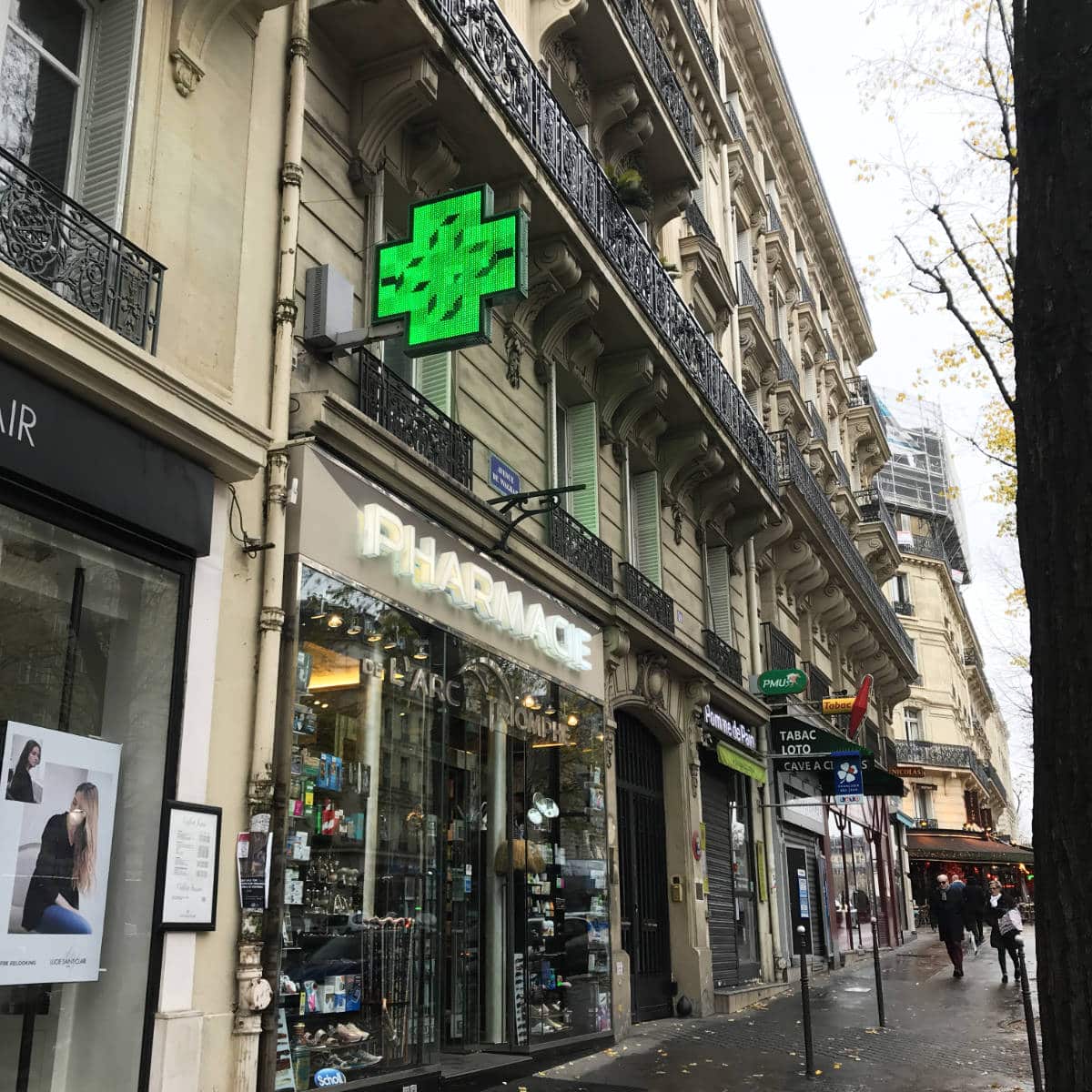In France, visits to the Doctor are paid for by the State. Like most other first world countries, you say. (I’m looking at you, U.S.A.)
Basically, the French healthcare system covers all legal residents for medical costs as long as you have lived there for over 3 months. All regular and emergency care visits to French doctors and other medical personnel are provided by Sécurité Sociale.
Sounds pretty good, dunnit? I’m from Canada though, so I have higher expectations!
This is public healthcare in France, and there is a private healthcare component as well. Private healthcare, i.e. healthcare prices not in excess is also covered up to a certain threshold, while the rest is covered by medical insurance through your employer.
For private healthcare, the patient pays the bill (usually around 25-50 euros for a generalist doctor) and then gets reimbursed. You may need to turn on your inner accountant to make sure you’re being properly reimbursed, but this is all still fine.
But there are a few differences chez le médécin that may not be life-threatening and/or bankruptcy inducing, but as a foreigner, will leave you scratching your head… So let’s get to those interesting quirks of the French medical system, shall we? Allons-y!
- 1. There are 11 French emergency phone numbers
- 2. Stay in the hospital for several days
- 3. Doctor's offices are in apartment buildings
- 4. You have to carry the vaccines yourself to give the doctor
- 5. Doctors do not wear white coats
- 6. You must visit the Médecin de Travail
- 7. Visit the PMI after giving birth in France
- 8. Rent a pump or wheelchair from your local French pharmacy
- 9. Taxis and other travel costs can be reimbursed by healthcare
- 10. Doctor's note for sporting activities
- 11. Stop smoking or lose weight? Covered by the French healthcare system
- 12. Go on a Three-Week Thermal Cure
1. There are 11 French emergency phone numbers
If you are in an emergency in France, you need to keep a cool head. There is not one number to call like 911 in the U.S., but eleven! (More is more in France!) You can read about the rest of the 11 numbers here, but just in case, the most important ones to remember are:
- #15 – Ambulance
- #17 – Police
- #18 – Fire brigade
- #112 – General emergency (same across Europe)
- #114 – Hearing impaired emergency number (can SMS as well)
2. Stay in the hospital for several days
The Princess of Wales (aka Kate Middleton) may have left the hospital a mere 3-4 hours after giving birth, but she is not French. In France, instances such as surgeries, giving birth or other medical events mean you get to stay in the hospital for at least 1-4 days, with the possibility of nurse follow-up at home.
And French hospital food, I found at least, is pretty decent. They try to mix it up with different courses and treat it like a proper meal. (Sadly lacking the wine, however.)
☞ READ MORE: Giving birth in France: Oh Baby!
3. Doctor’s offices are in apartment buildings
Regular doctor appointments (i.e. if you are not going to a hospital), usually take place at a doctor’s office. Except that these doctors’ offices are usually in an 18th century Haussmannian building with tall ceilings and elaborate crown moldings. How they keep this clean and dust-free, I have no idea. It is definitely not the sterile white doctor’s office in North America.
4. You have to carry the vaccines yourself to give the doctor
Since doctors do not work out of medical buildings, they also never have items such as medicines or vaccines on hand. (Even the ones in clinics do not.)
So if you need a vaccination, you have to first make an appointment with your doctor, and get a prescription. Then you go to your local pharmacy, get the prescription, and then make another appointment to go back to the doctor.
Double the appointments, double the bills, double the accounting! Yippee! And in the meantime, the vaccine may be sitting in your fridge, until your next appointment.
5. Doctors do not wear white coats
Along with working from apartment buildings, French doctors will rarely wear white coats. There are usually no secretaries in the doctor’s office either, so the person who opened the door is very likely the doctor.
Even at hospitals, it is often hard to tell who is who since everyone is dressed in casual clothing. If you’re confused, just assume everyone is, so that you don’t accidentally insult someone.
6. You must visit the Médecin de Travail
Before you starting work, the French Government wants to make sure that you are medically fit to do the job. So it has a special Médecin de Travail (Work Doctor) check up on you. Your employer will send you (during regular work hours) before you start work. And the Work doctor will continue to check up on you every 5 years as long as you are with the same employer. (It used to be every 2 years!)
You will also have to be cleared to work by the Médecin de Travail if you are off of work any significant time off for medical reasons (over 30 days). It doesn’t matter what type of profession you are in, or if you have your own doctor, it is still obligatory.
7. Visit the PMI after giving birth in France
After having a baby, French Healthcare has a mandatory list of appointments that you must take your baby to. And the PMI (Protection Maternelle et Infantile) was created to make sure you do. After giving birth, the hospital will send the details of your newborn to your local PMI, where you and your newborn must present yourself within 8 days. (I don’t know if they send the police after you if you don’t, but best not to risk it!)
The PMI offers free healthcare to children under 6, including free vaccinations, support for post-natal depression, advice on nursing, etc. Your newborn must be seen by the PMI or your pediatrician every month until he or she is 6 months old. There are other mandatory visits too, such as at 9 months and 24 months. These visits are all free.
☞ READ MORE: Giving birth in France: Oh Baby!
8. Rent a pump or wheelchair from your local French pharmacy
Amongst all the wonderful creams and lotions that French pharmacies are famous for, lactating moms can also rent a handheld or mechanical pump for a nominal cost. Or a walker or wheelchair. If your doctor prescribes it for you, it is free. Practical indeed!
9. Taxis and other travel costs can be reimbursed by healthcare
In France, if you need to go for medical treatment and you don’t have anyone to drive you, you should keep your taxi receipt (link in French). All you need is for your doctor to give you a prescription to validate the expense, and it will be reimbursed by the French Healthcare system.
10. Doctor’s note for sporting activities
If you decide to join a gym, you will need to get clearance from your French doctor. The same goes if you decide to run a race (5k) or sign up for any other sporting activity.
My then 1.5-year-old got a doctor’s note authorizing Baby Gym, dance, badminton, and swimming, but not tennis, roller-blading or fencing. (The 2.5-year-old was authorized all of the above though!)
This Doctor’s note used to be required annually, until 2018. (Since 2018, it is every 3 years, unless medical reasons indicate otherwise.)
11. Stop smoking or lose weight? Covered by the French healthcare system
Want to lose weight or stop smoking (links in French)? The French Government will pay for it. All you need is for your doctor to prescribe treatment, and it will be covered by Sécurité Sociale.
Items that could be reimbursed include trips to a nutritionist, psychologist, physiotherapy, medications, nicotine substitutes, certain gym memberships, etc.
12. Go on a Three-Week Thermal Cure
If the nutritionist doesn’t work, the French government will send you on a 3-week Thermal Cure to lose weight. Other medical conditions (link in French) that are eligible for the Cure are arthritis, rheumatism, cardiovascular disease, developmental disorders in children, dermatology issues, etc.
The Cure is exactly what it sounds like, a stay at a spa with saunas, hammams, massages and swimming pool. The spa will create a program to follow based on the recommendations of your doctor, along with food guidance.
You can go on one 3-week cure per year, and indeed I know several people who do go every year. You just need your doctor to write you a prescription. (There is a reason French taxes are high, you know.)

So are you ready to move to France? Vive Free French Healthcare! If you enjoyed that article, you may like to read more about living in Paris. A bientôt!




